Bookclub
I am a passionate and enthusiastic reader and want to share the lessons I have learned from some of the great leadership books of our time. Interesting and useful concepts and strategies are then included in my training and speaking programmes.
Updated fortnightly with new reflections and recommendations.
“Reading is to the mind what exercise is to the body.” - Joseph Addison
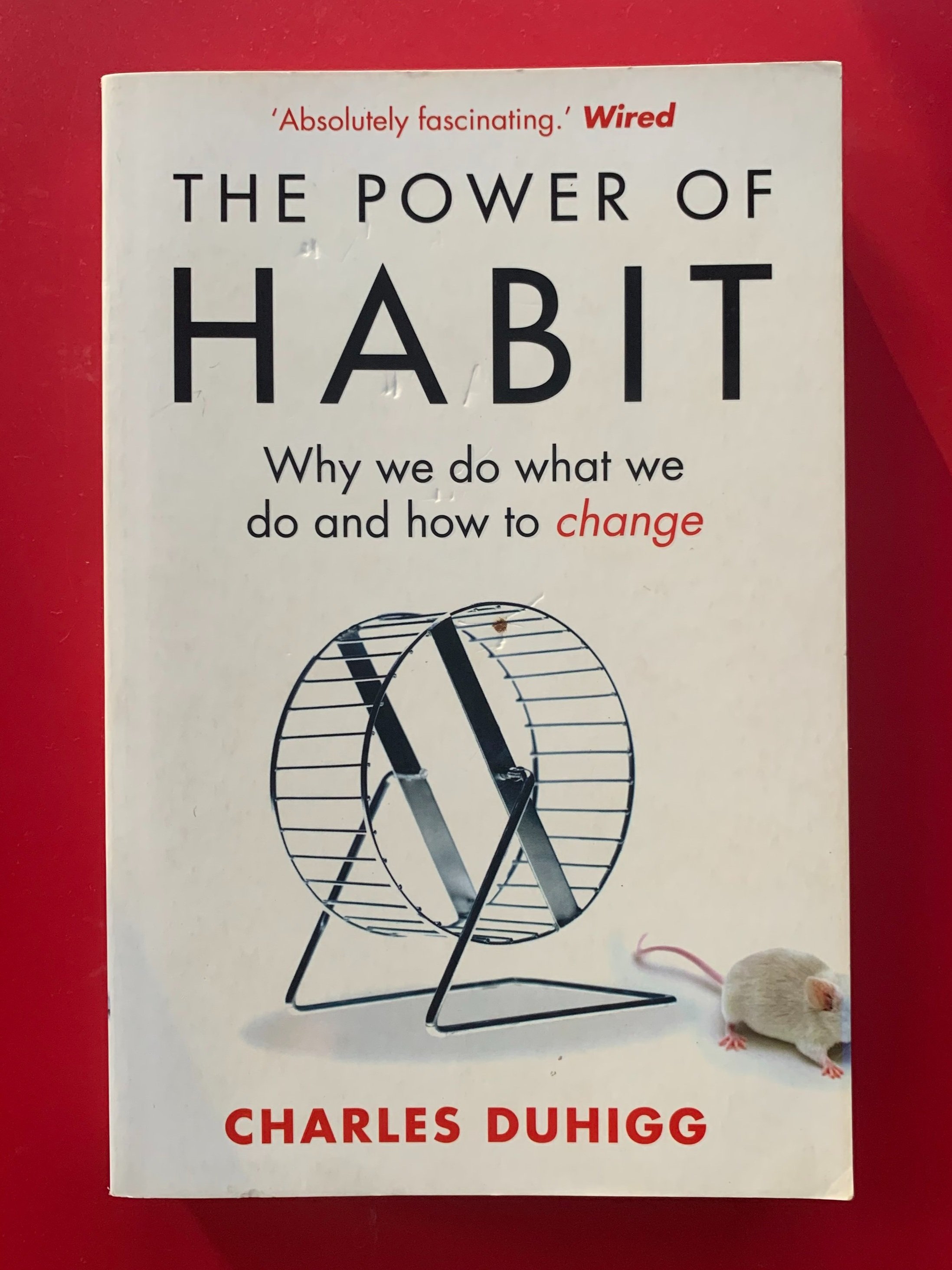
The Power of Habit by Charles Duhigg
“Habits, as much as memory and reason, are at the roots of how we behave.”
3 Main Messages:
Habits are built about the cue-routine-reward routine and can be controlled
By changing keystone habits you can change entire company culture
There is great power in small community groups

The Intelligence Trap by David Robson.
“Some psychologists now consider that general intelligence, curiosity and conscientiousness are together the ‘three pillars’ of academic success; if you lack any one of these you are going to suffer.”
3 Main Messages:
There is more than one way to measure intelligence.
We can improve learning by spacing lessons and encouraging desirable difficulty.
Great teams are built on dissent, not star players.

Happy Sexy Millionaire by Steven Bartlett
“We have to invite gratitude into our lives and we have to do it constantly and consistently.”
3 Main Messages:
Take responsibility and ownership for your failures as well as your successes
Don’t get bogged down with comparisons - water your own grass
Life is short, be intentional about how you spend your days

Think Again by Adam Grant
“We listen to views that make us feel good, instead of ideas that make us think hard.”
3 Main Messages:
“The purpose of learning isn’t to affirm our beliefs; it’s to evolve our beliefs.”
The way to find a compromise is all about the dance and the questions we ask
It is possible to move from binary ways of thinking and step into the grey middle zone

Revolution From Within by Gloria Steinem
“I began to understand that self-esteem isn’t everything; it’s just that there’s nothing without it.”
3 Main Messages:
For any of us to thrive we need to feel valued - especially as children by our parents and teachers
We should rethink the scales that are used to measure intelligence and worth
Humans are more connected to the earth and its animals than we realise in modern society
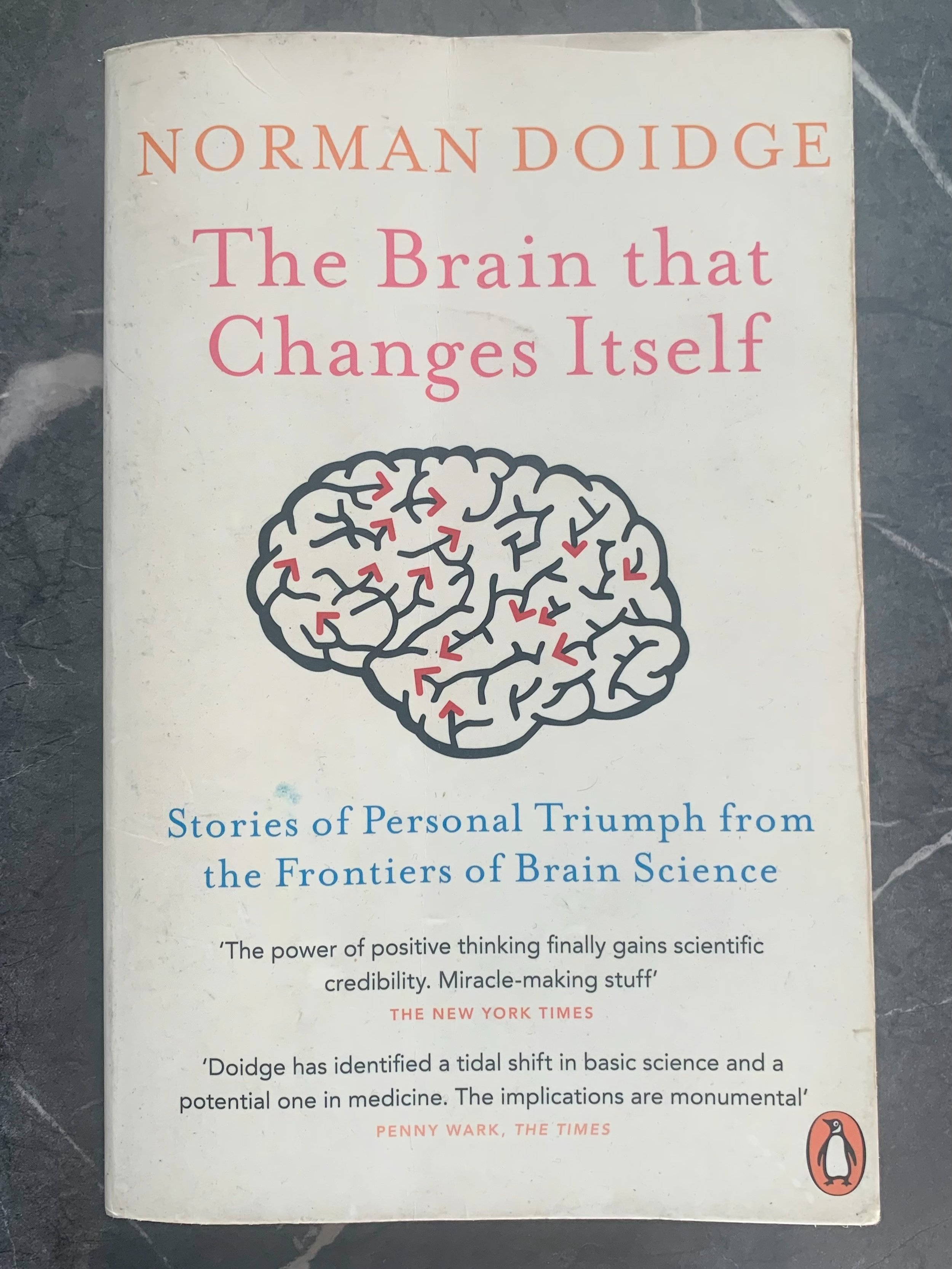
The Brain That Changes Itself by Norman Doidge
“Early childhood is so important - it’s best to get it right early before the ‘bad habit’ gets a competitive advantage”
3 Main Messages:
Brain mapping has shown that the brain rewires itself to compensate for lost function
We are able to remap our brains in order to compensate for disabilities and additional needs
Childhood mapping is critical but it can be rewired with effort
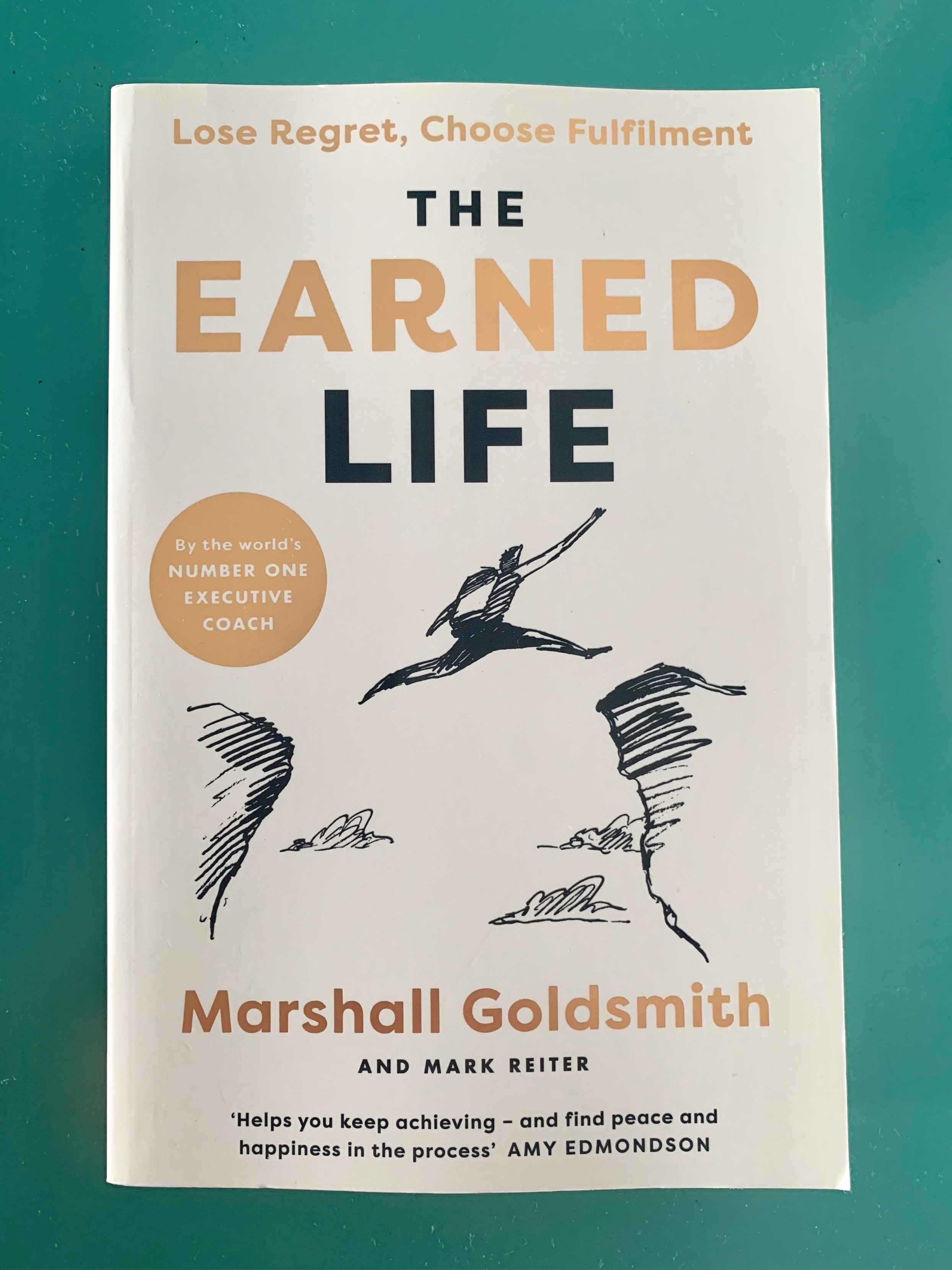
The Earned Life by Marshall Goldsmith
“We are living an earned life when the choices, risks, and effort we make in each moment align with an overarching purpose in our lives, regardless of the eventual outcome.”
3 Main Messages:
We choose our life daily in the small choices we make that add up
Life is about achievement, effort, conduct and attendance
Sometimes we are allowed to enjoy eating the marshmallow

A Promised Land by Barack Obama
“I didn’t share these feelings with anyone on my team; they were frazzled enough as it was. Suck it up, I told myself. Tighten your lace. Cut your rations. Keep moving.”
3 Main Messages:
Surround yourself with experts; listen to them respect them, acknowledge, praise and thank them
As a leader, you are the target of blame for all that you have inherited as well as for situations forced on you
He was always focused on helping the vulnerable and allowing everyone the opportunity for a better life
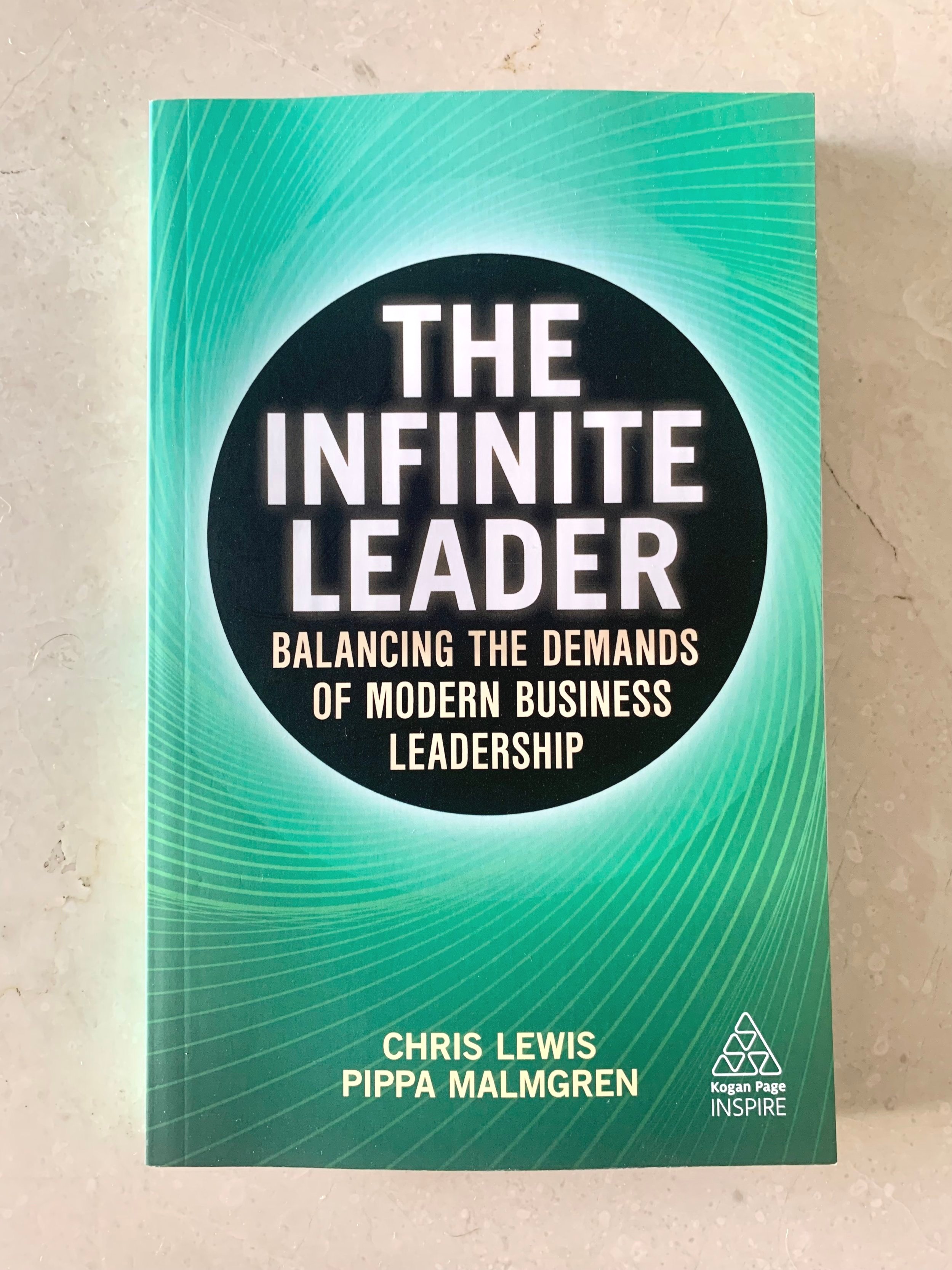
The Infinite Leader by Chris Lewis & Pippa Malmgren
“It doesn’t need to be the leader who has the ideas or even who sees them. The leader just needs to create a culture where ideas come to life.”
3 Main Messages:
Leaders need to be the most flexible member of the team
“We don’t need leaders with brains or hearts, we need them with both.”
The education system needs to change in order to value leadership skills, problem solving and flexibility instead of focusing on exam results.
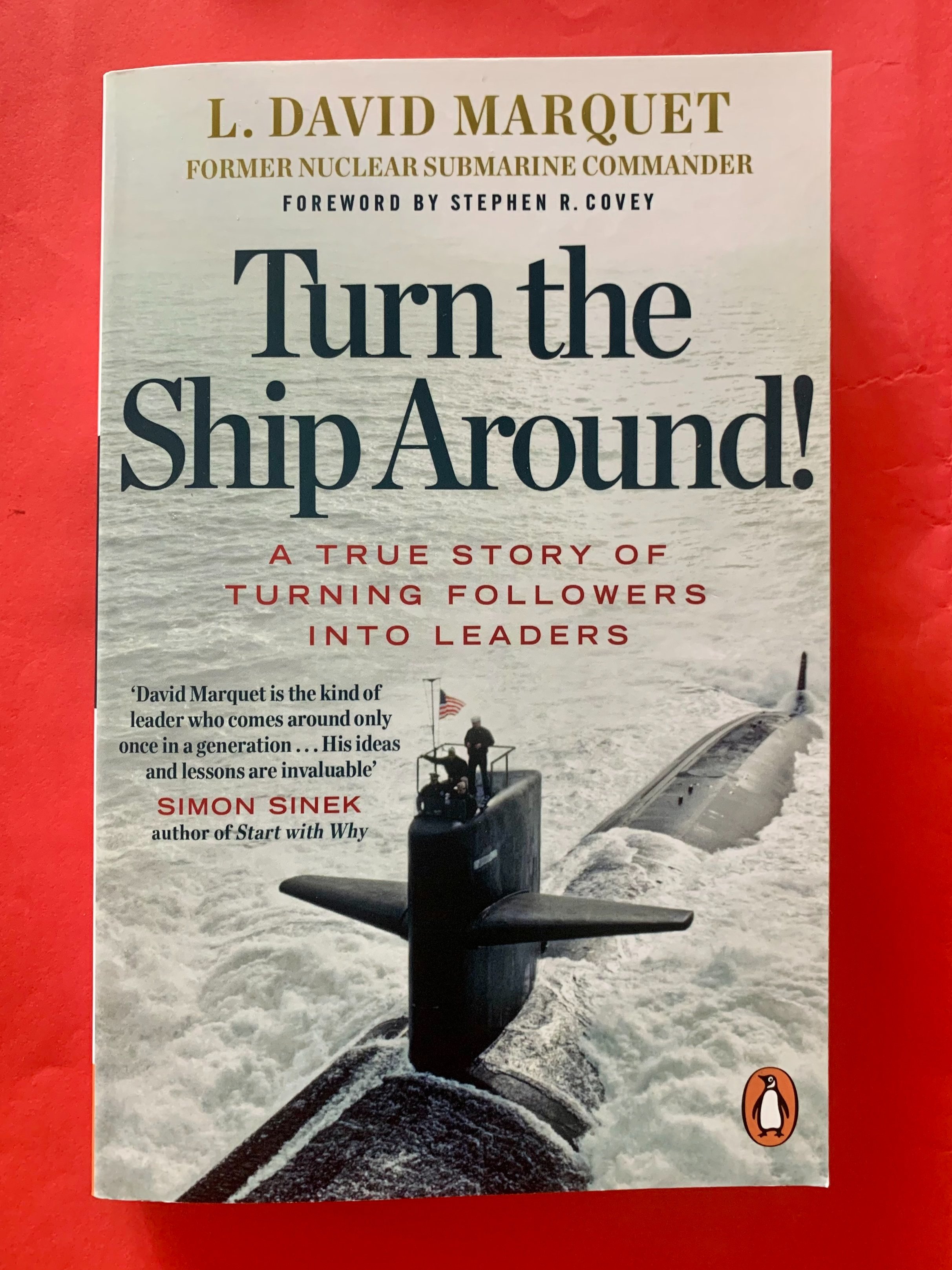
Turn the Ship Around by L. David Marquet
“On Sante Fe, doing well on inspections was going to be the natural outcome of being excellent, not the goal”
3 Main Messages:
For long term success you have to ignore short term reward systems
To build a legacy you need to build a leader-leader culture
Control without competence is chaos

The Antidote by Oliver Burkeman
“Failure is everywhere. It’s just that most of the time we would rather avoid confronting that fact”
3 Main Messages:
Sometimes searching for happiness can make it more elusive
We are not our thoughts
We cannot control the world or events, only how we respond to them

Leadership Plain and Simple by Steve Radcliffe
“Your first and foremost job as a leader is to manage your own energy, and help manage the energy of those around you.”
3 Main Messages:
FUTURE: You need to articulate a clear vision
ENGAGE: Build relationships and your team
DELIVER: You need to manage your 4 energies and be able to have honest conversations

Originals by Adam Grant
“Becoming original is not the easiest path in the pursuit of happiness, but it leaves us perfectly poised for the happiness of pursuit”
3 Main Messages:
A large quantity of ideas creates quality ideas
Original ideas need to be sold a certain way
We need the right balance of criticism and encouragement

The One Thing by Gary Keller with Jay Papasan
“The prescription for extraordinary results is knowing what matters to you and taking daily doses of actions in alignment with it.”
3 Main Messages:
When we try to do everything and please everyone we miss the chance of doing the most important thing to ensure success
By prioritising your purpose you will achieve productivity and profitability
We can create environments and habits to ensure success

Listen by Kathryn Mannix
“We offer more consolation by holding a lost hand in a dark place than by shouting instructions from the safety of the light. “
3 Main Messages:
Conversations are like a dance where we have to mirror and match each other.
Listening provides a space. It is ‘being with’, not ‘doing to’.
By asking open questions we can bridge gaps and support people in their understanding.

Radical Candor by Kim Scott
“The ultimate goal of Radical Candor is to achieve collaboratively what you could never achieve individually, and to do that you need to care about the people you are working with.”
3 Main Messages:
It is a leader’s role to give kind, clear and honest feedback.
Rockstars and superstars are equally valuable on a team and need to be treated and rewarded differently.
Leaders need to show, not tell, and so the first step is asking for feedback.

The Tipping Point by Malcolm Gladwell
“Ideas and products and messages and behaviours spread just like viruses do”
3 Main Messages:
There are a few people with significant influence, such as a connector, a maven or a salesman, who are pivotal in causing a trend to tip.
Certain messages and language stick better than the rest.
Character and behaviour are influenced by context.
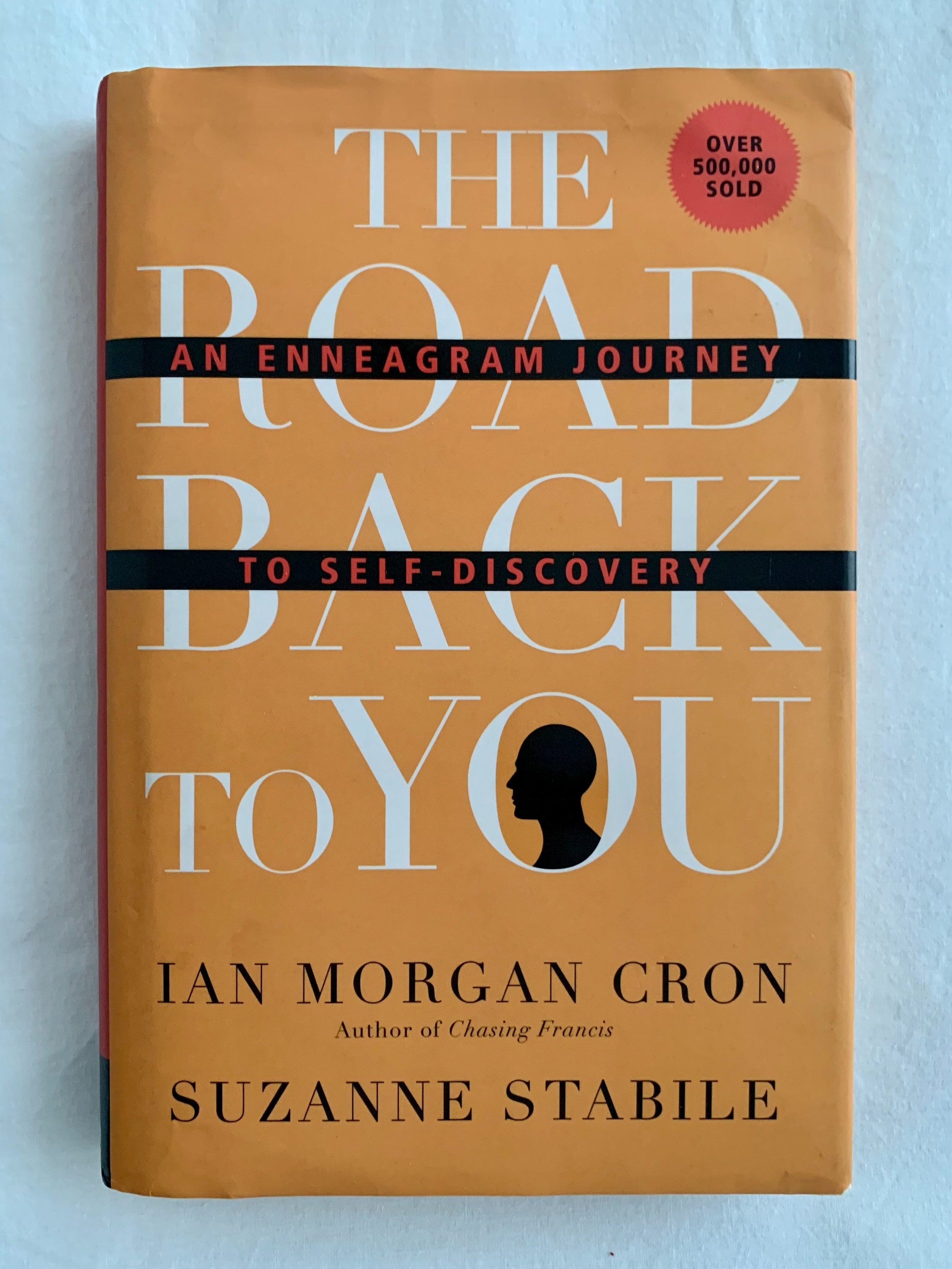
The Road Back to You by Ian Morgan Cron and Suzanne Stabile
“Working with the Enneagram helps people develop the kind of self-knowledge they need to understand who they are and why they see and relate to the world the way they do.”
3 Main Messages:
By learning more about ourselves we can make improvements
By learning more about others we can understand them better
Understanding ourselves and each leads to growth and connection

Getting Things Done by David Allen
“Anything that is held only is your head will take up either more or less attention than it deserves”
3 Main Messages:
Use your mind to think about things, rather than of them
We need to capture, clarify and organise everything in our heads
An effective system will increase time efficiency, make you you less stressed and make others trust you more

The Culture Code by Daniel Cole
“These awkward, painful interactions generate the highly cohesive, trusting behaviour necessary for smooth operation.”
3 Main messages:
People need to feel psychologically safe in order to perform at their best
Leaders need to share vulnerability
Successful cultural communities are aligned around a clear and agreed purpose

